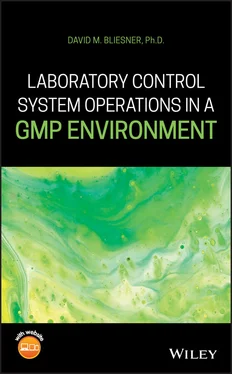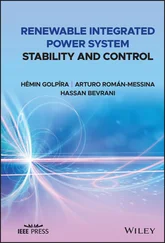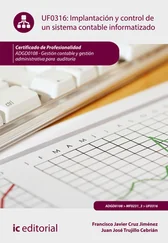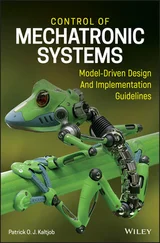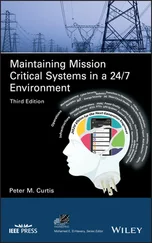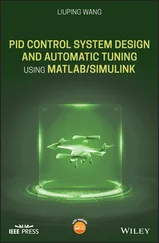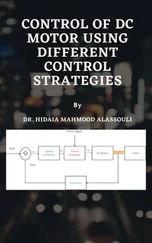187 183
188 184
189 185
190 186
191 187
192 188
193 189
194 190
195 191
196 192
197 193
198 194
199 195
200 196
201 197
202 198
203 199
204 200
205 201
206 202
207 203
208 204
209 205
210 206
211 207
212 208
213 209
214 210
215 211
216 212
217 213
218 214
219 215
220 217
221 218
222 219
223 220
224 221
225 222
226 223
227 224
228 225
229 226
230 227
231 228
232 229
233 230
234 231
235 232
236 233
237 234
238 235
239 236
240 237
241 238
242 239
243 240
244 241
245 242
246 243
247 244
248 245
249 246
250 247
251 248
252 249
253 250
254 251
255 252
256 253
257 254
258 255
259 256
260 257
261 258
262 259
263 260
264 261
265 262
266 263
267 264
268 265
269 266
270 267
271 268
272 269
273 270
274 271
275 272
276 273
277 274
278 275
279 276
280 277
281 278
282 279
283 280
284 281
285 282
286 283
287 284
288 285
289 286
290 287
291 288
292 289
293 290
294 291
295 292
296 293
297 294
298 295
299 296
300 297
301 298
302 299
303 300
304 301
305 302
306 303
Laboratory Control System Operations in a GMP Environment
David M. Bliesner, Ph.D.
Delphi Analytical Services, Inc.
Indian Rocks Beach, Florida

This edition first published 2020
© 2020 John Wiley & Sons Inc.,
All rights reserved. No part of this publication may be reproduced, stored in a retrieval system, or transmitted, in any form or by any means, electronic, mechanical, photocopying, recording or otherwise, except as permitted by law. Advice on how to obtain permission to reuse material from this title is available at http://www.wiley.com/go/permissions.
The right of David M. Bliesner to be identified as the author of this work has been asserted in accordance with law.
Registered Office
John Wiley & Sons, Inc., 111 River Street, Hoboken, NJ 07030, USA
Editorial Office
111 River Street, Hoboken, NJ 07030, USA
For details of our global editorial offices, customer services, and more information about Wiley products visit us at www.wiley.com.
Wiley also publishes its books in a variety of electronic formats and by print-on-demand. Some content that appears in standard print versions of this book may not be available in other formats.
Limit of Liability/Disclaimer of Warranty
In view of ongoing research, equipment modifications, changes in governmental regulations, and the constant flow of information relating to the use of experimental reagents, equipment, and devices, the reader is urged to review and evaluate the information provided in the package insert or instructions for each chemical, piece of equipment, reagent, or device for, among other things, any changes in the instructions or indication of usage and for added warnings and precautions. While the publisher and authors have used their best efforts in preparing this work, they make no representations or warranties with respect to the accuracy or completeness of the contents of this work and specifically disclaim all warranties, including without limitation any implied warranties of merchantability or fitness for a particular purpose. No warranty may be created or extended by sales representatives, written sales materials or promotional statements for this work. The fact that an organization, website, or product is referred to in this work as a citation and/or potential source of further information does not mean that the publisher and authors endorse the information or services the organization, website, or product may provide or recommendations it may make. This work is sold with the understanding that the publisher is not engaged in rendering professional services. The advice and strategies contained herein may not be suitable for your situation. You should consult with a specialist where appropriate. Further, readers should be aware that websites listed in this work may have changed or disappeared between when this work was written and when it is read. Neither the publisher nor authors shall be liable for any loss of profit or any other commercial damages, including but not limited to special, incidental, consequential, or other damages.
Library of Congress Cataloging-in-Publication Data
Names: Bliesner, David M., author.
Title: Laboratory control system operations in a GMP environment / David M. Bliesner.
Description: Hoboken, NJ : Wiley, [2020] | Includes bibliographical references and index.
Identifiers: LCCN 2019052264 (print) | LCCN 2019052265 (ebook) | ISBN 9781119529231 (cloth) | ISBN 9781119529279 (adobe pdf) | ISBN 9781119529293 (epub)
Subjects: LCSH: Medical laboratories--Quality control. | Laboratories--Management. | Pharmacy--Research. | Manufacturing processes--Quality control.
Classification: LCC RB36.3.Q34 B55 2020 (print) | LCC RB36.3.Q34 (ebook) | DDC 610.28/4--dc23
LC record available at https://lccn.loc.gov/2019052264
LC ebook record available at https://lccn.loc.gov/2019052265
Cover Design: Wiley
Cover Image: © Image Journal-Photography/Getty Images
To my wife and best friend, Kathy .
Regulatory agencies such as the US Food and Drug Administration (FDA) and the European Medicines Agency (EMA) mandate that companies who manufacture drugs for human and animal use be operated in a state of control by employing conditions and controls commonly referred to as good manufacturing practices (GMPs). In the United States the GMPs or CGMPs (where C = current) are codified in 21 Code of Federal Regulations Parts 210 and 211. In the European Union the GMPs are described in EudraLex – Volume 4, the Good Manufacturing Practice (GMP) guidelines. Other Regulatory bodies, such as the World Health Organization (WHO) and the International Council for Harmonization (ICH) also provide requirements and guidelines with respect to GMPs.
At the turn of the twenty-first century the FDA was actively engaged in regulatory actions against pharmaceutical companies whom they determined to be in significant violation of the CGMPs. As part of FDA's actions, several large companies entered into voluntary legal agreements referred to as Consent Decrees. These agreements existed for the expressed purpose of correcting the deficiencies related to CGMPs. Consent Decrees routinely require the contracting of independent third-party expert consultants. These consultants' duties include performing a baseline audit of the offending facilities, documenting their findings and helping the companies develop and implement corrective action plans.
To help collect evidence to support regulatory actions, FDA began using a Quality Systems approach to evaluate a firm's level of GMP compliance.
The Quality Systems approach is a scheme of systems for the manufacture of drugs and/or drug products. The general scheme of systems FDA used for auditing manufacture facilities consists of the following:
1 Quality System
2 Facilities and Equipment System
3 Materials System
Читать дальше
